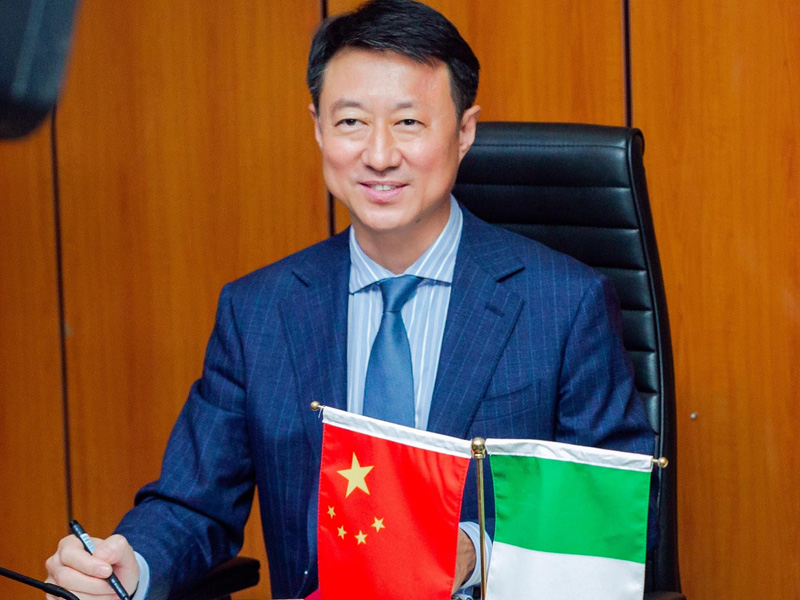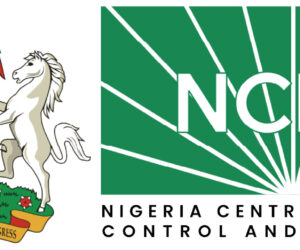Ambassador of China to Nigeria, Yu Dunhai has revealed plan of Chinese companies to build a local insulin production facility in Nigeria.
Yu, made the disclosure at a grand reception in Abuja to mark the 76th anniversary of the founding of the People’s Republic of China.
He said the project when completed, would end Nigeria’s dependence on import.
The envoy said, “Chinese companies are in talks with Nigeria to build Africa’s first local insulin production facility, potentially ending Nigeria’s reliance on imported insulin and positioning Nigeria as a hub for African medical biotechnology.”
He noted that Nigeria-China relationship is a growing “comprehensive strategic partnership” with expanding political, economic, and cultural cooperation.
Yu described the year 2025 as a pivotal moment for China’s development, China-Africa relations, and global diplomacy.
He said, “This year marks the 80th anniversary of the founding of the United Nations,” stating that China’s Global Governance Initiative offers “Chinese wisdom and solutions to strengthen and improve global governance.”
He described China’s achievements over the past seven decades as transformatory and “miraculous.”
He said over the past 76 years, the Communist Party of China with a strong spirit of self-reform has united and led the Chinese people in achieving two miracles: rapid economic growth and long-term social stability.
He added that, “The Chinese nation’s great rejuvenation has entered an irreversible historical trend.”
He listed some of the progress achieved which to include poverty alleviation, noting
that China had lifted more than 800 million people out of poverty, stating that it a “Chinese poverty alleviation miracle.
He added that: “In 2024, China’s GDP exceeded $18 trillion, with a per capita GDP surpassing $13,000. For years, China has contributed over 30 percent to global economic growth.”
Yu noted that the next phase of China’s development national rejuvenation through modernisation would emphasize peace, development, and mutual benefit.
He disclosed that, “We are eager to share development opportunities with African countries, including Nigeria, and the rest of the world.”
He praised Nigeria’s recent endorsement of the GGI, stating, “Days ago, the Nigerian government issued a statement to endorse the Initiative. China deeply appreciates this support and backs Nigeria’s greater role on the international stage.
“We are ready to work with Nigeria and African countries to advance cooperation under the framework of the GGI,” the envoy added.
He also stressed the increasing economic and diplomatic engagement between the two countries. “It has been one year since President Bola Tinubu’s state visit to China,” he said, noting that the visit elevated bilateral ties to a “comprehensive strategic partnership.”
The visit was envoy pointed to several key projects as evidence of tangible progress, including the Lekki Deep Sea Port and the Abuja Water Supply Project. “The Lekki Deep Sea Port has become a new ‘national gateway’ for Nigeria’s global trade,” he stated, adding that it is projected to generate $360bn in economic benefits and create 170,000 jobs over the next 45 years.
On water infrastructure, Yu noted that: “The Abuja Water Supply Project was completed in June. With a daily capacity of 480,000 cubic meters, it will meet the clean water needs of nearly 3 million people.”
He highlighted the story of Nigeria’s first female train driver, trained by China Civil Engineering Construction Corporation, saying, “Ms. Issah Abiola, known by her Chinese name Bai Yang by Chinese netizens, was honoured with China’s ‘Friendship Envoy Award’, one of only six global recipients.”
He welcomed the recent move by the Federal Government to include the Chinese language in the senior secondary school curriculum.
Also, the Deputy Senate President Barau Jibrin stressed the symbolic connection between both nations, noting that Nigeria and China share a common national day October 1st.
Represented by the Senator representing Jigawa North-West Senatorial District, Babangida Hussaini, the Deputy Senate President noted that the partnership between the two countries has evolved into a “comprehensive strategic partnership,” which he said is reflected in visible investments across Nigeria in sectors such as roads, railways, power plants, and industrial parks.
Today, Chinese enterprises and investments are visible in every corner of Nigeria, contributing to the modernization of our infrastructure.”
Jibrin also described Tinubu’s state visit to China, as a turning point that “consolidated our shared vision for a future where the resources, talent, and strength of both countries are harnessed for the prosperity of our people.”
He expressed optimism about future collaborations under frameworks such as Nigeria’s 10-Year Development Plan and China’s Belt and Road Initiative.
He said all these are “opening new opportunities for growth, connectivity, and shared prosperity.”
On people to people relation, he said, “Thousands of young Nigerians today are studying in China, acquiring knowledge and skills that will shape the future of our country. Similarly, Nigerian culture is finding appreciative audiences in China.”
Jibrin also reaffirmed the National Assembly’s commitment to strengthening ties through parliamentary diplomacy.
Michael Olugbode
Follow us on:








